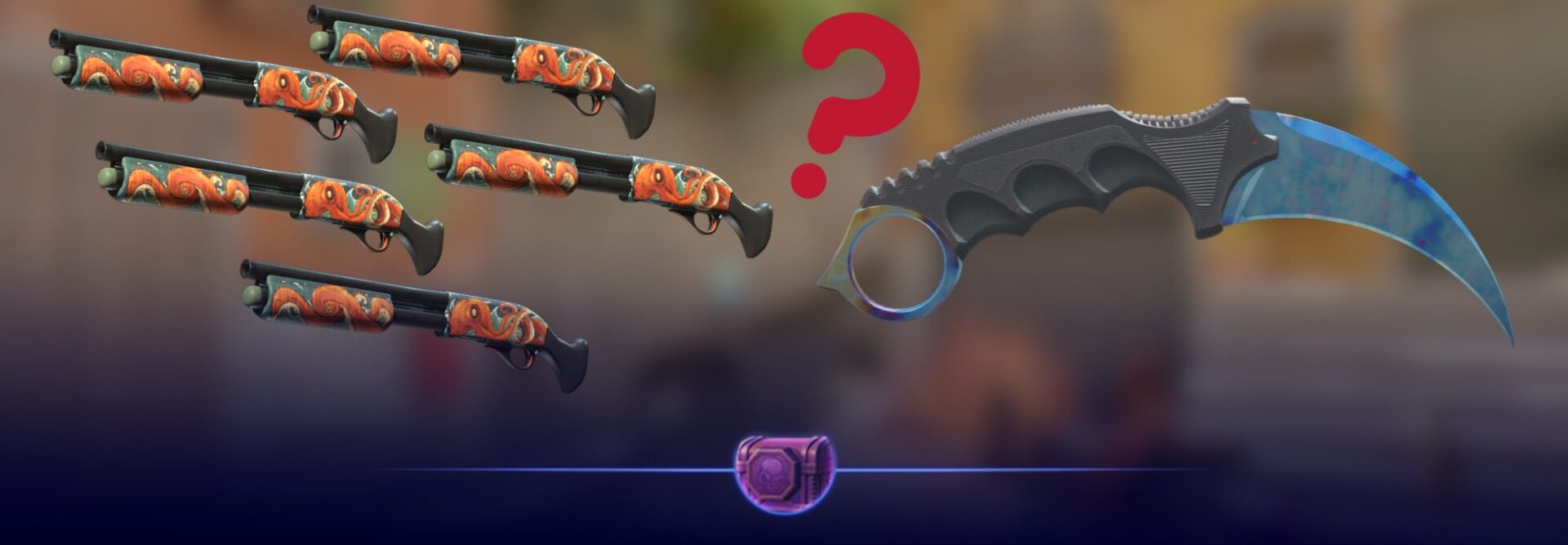Boat Drops: Your Portal to Aquatic Adventures
Explore the world of boating with tips, news, and insights.
Why Skin Trade Cancellation in CS2 is a Blessing in Disguise
Discover why the cancellation of skin trade in CS2 could be the unexpected change players didn’t know they needed for a better gaming experience!
The Hidden Benefits of Skin Trade Cancellation in CS2
The recent skin trade cancellation in Counter-Strike 2 (CS2) has stirred significant conversation among players and the gaming community. While many lament the removal of trading features for in-game skins, there are hidden benefits that should be acknowledged. One of the most notable advantages is the enhancement of game integrity. By eliminating the skin trading market, CS2 reduces opportunities for fraud and scams, ensuring a safer environment for newcomers and seasoned players alike. This move fosters a more genuine gameplay experience, as players will focus on skill rather than on the monetary value of virtual items.
Another significant benefit of the skin trade cancellation is the potential for a more even playing field. In many competitive gaming scenarios, players with rare or expensive skins can inadvertently gain an unfair psychological advantage. By removing the ability to trade skins, CS2 aims to promote a more egalitarian atmosphere where skill becomes the primary measure of success. Additionally, this shift may lead to a greater appreciation for the game's core mechanics and strategies, as players are less distracted by the allure of cosmetic items. In the long run, this could result in a healthier, more engaged player base that prioritizes competitive integrity over material wealth.

Counter-Strike is a popular team-based first-person shooter game that has captivated millions of players worldwide. It features competitive gameplay where teams of terrorists and counter-terrorists face off in various game modes. To enhance your experience, you might want to learn how to reverse trade cs2, which can help you manage your in-game inventory more effectively.
How Skin Trade Cancellation in CS2 Promotes a Fairer Gaming Environment
The recent skin trade cancellation in CS2 has sparked significant discussions among the gaming community, raising awareness about the intricacies of virtual item trading. By banning this practice, Valve aims to mitigate the influence of real-world money transactions on in-game environments, creating a level playing field where skill takes precedence over monetary investments. This change enhances the integrity of gameplay, as players can engage without the pressure of needing to acquire expensive skins or the fear of unfair advantages that could spoil the gaming experience.
Moreover, the decision to cancel skin trading directly promotes a fairer gaming environment, as it discourages fraudulent activities and potential scams that often plague players. This shift not only protects players from financial risks but also fosters a community where dedication and skill are paramount. Players can now focus on their abilities, ensuring that achievements are earned rather than purchased, which ultimately leads to a more rewarding experience for all.
Is CS2's Skin Trade Cancellation the Best Move for the Future of Gaming?
The recent decision to cancel skin trading in Counter-Strike 2 (CS2) has sparked significant debate within the gaming community. Many argue that this move could herald a new era of gaming, prioritizing fairness and reducing the potential for exploitation. Skin trading has long been associated with issues such as market volatility and even scams, which have tarnished the experience for many players. By eliminating this feature, CS2 may promote a more level playing field where players can focus on the game's mechanics rather than monetary transactions.
However, critics of the cancellation assert that it could stifle community engagement and the vibrant marketplace that skins created. Skin trading allowed players to express their individuality and contributed to the overall culture of CS2. Instead of a blanket cancellation, a more balanced approach—such as implementing regulations to prevent fraud—might have better served both the community and the integrity of the game. As the gaming landscape evolves, it will be vital to find innovative solutions that address these challenges while maintaining player enjoyment.